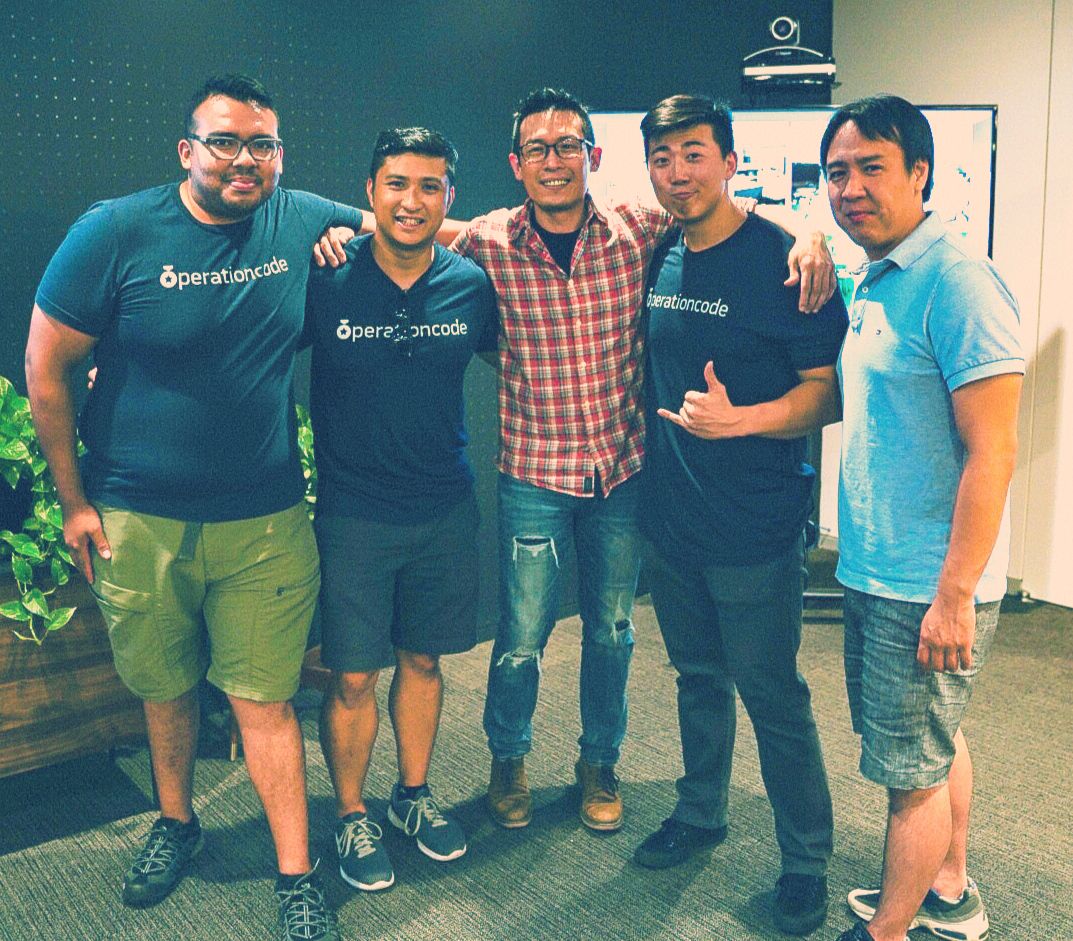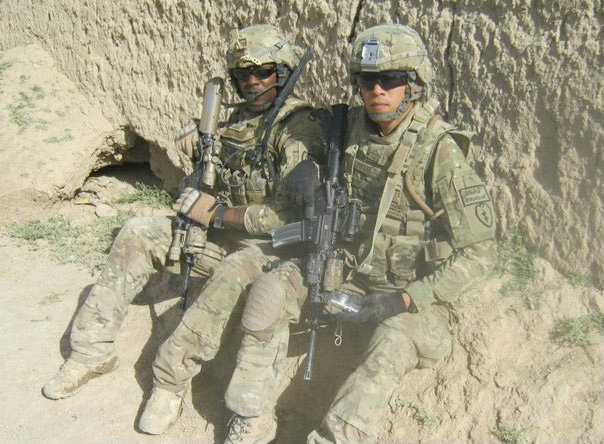As a U.S. Army combat arms infantryman and an expert in intelligence work, Kevin Lee was trained to think about how to look for a threat. During his deployment to Afghanistan earlier this decade, he said he studied areas of operation to determine where possible danger came from and to come up with solutions to mitigate those threats. It wasn’t totally surprising, then, that when he transitioned to civilian life he became a software engineer with a focus on security.
As an in-house developer at the multimedia publishing company Condé Nast, home of Vanity Fair and Wired, Kevin now fights different types of challenges, including automating integration of ads into the company’s magazine site platform, diagnosing software interaction problems, and optimizing the code base.
While his job is not as heart-pulsating as the military, Kevin is happy and believes it was his life-altering decision to join App Academy that pushed him to be all he could be in tech.
Why Kevin attended App Academy

After leaving the military, Kevin says he wanted to find an inventive job where he could build and create things. He started by helping a friend run a small online eyewear business called GlassyPeople. The young veteran created and managed the startup’s Shopify website, where customers purchased flexible and durable glasses. But from the very beginning, he didn’t like Shopify’s software templates (they were confusing to work with) and wanted to make his own.
Soon, he realized that to make a proper, fully functional site, he needed a good foundation in web development, particularly in JavaScript. In an interview, Kevin told us how he learned HTML and CSS on his own to make basic customizations on Shopify.
“I wanted to change it, but I didn’t want to pay anyone, so I just did it myself,” he says.
Shortly after, Kevin moved further along a self-study path.
Using freecodecamp.org, Kevin learned front-end JavaScript and, stoked by the attention level required, decided to become a full-time software engineer. The first thing he did was reach out to software engineer friends in San Francisco for recommendations on how to get into the industry. His friend recommended coding bootcamps and specifically, the best one in the country, App Academy.
As a twelve-week coding bootcamp, App Academy was a good fit for Kevin. He could move to the Bay Area for a time, get in, and come out with refined programming skills and a good chance at a high-paying job. Kevin especially liked the guaranteed job aspect of the bootcamp, which is tied into App Academy’s deferred tuition model. Kevin went through the admissions process and joined the Winter 2017 cohort.
He found his previous Army experience helped him fit right in.
How Kevin’s Army experience helped at App Academy

As an infantryman, Kevin knew how to be a team player. In fact, his favorite part of serving was the camaraderie between soldiers. He explained to us how fellow soldiers were always there for each other no matter the situation.
“When I was so exhausted, hungry and cold, they were there, and we took care of each other,” says Kevin.
Challenging aspects of the App Academy course were made a little better because fellow bootcamp students also supported each other. Your life was not on the line like it was in the service, he says, but learning new concepts together can make things easier.
Similarly, his experience as a soldier pursuing difficult mental and physical problems guided him through the difficulties of the course.
“The military teaches you how to perform to the best of your abilities during demanding times,” he told us, “and that everyone who has worn the uniform has faced a situation where he or she truly believed “I am not capable of performing this task.” But they all reached deep within themselves to push through the challenge and accomplish what they previously thought was an impossibility.”
Leaving the military’s support structure

When leaving the military, servicemen and women are concerned about their change in lifestyle because transitioning from military life is intense — they simply don’t have the same support structure outside.
“When you come out [of the military] there is definitely that fear,” says Lee.
Soldiers have everything organized and provided for them in the military. If they’re sick, for example, soldiers walk to the clinic and that’s it. The entire military, in essence, is a support system as an organization.
Civilian life is challenging because soldiers have to find their own way without the structure they are used to. Lee gives an example of how veterans are not used to navigating civilian life. Instead of just going to a military clinic, “you have to worry about your insurance, co-pay, all the different paperwork, admin work, getting yourself there, it’s a whole different set of challenges,” says Lee.
And of course, there are a lot more things veterans have to account for than medical bills. Navigating the post-military career process is hard and many often stall in the months after returning from battle. Lee took his experience moving into tech and wanted to help other veterans make an even better transition.
As a result, Lee got together with other veterans to create a non-profit organization, Operation Code, dedicated to mentoring deployed members interested in getting into the tech industry. They’ve worked with government officials to ensure former soldiers can use the GI Bill on coding bootcamps like App Academy, for example, and even the have the capacity to loan out laptops to those who need them to get started.
Why soldiers should become coders
He explained to us how army veterans are qualified to become coders. Even though they don’t know how to code when coming out of the military, they are very hard workers in team environments. “[Soldiers] are very used to being on a team, having learned how to both follow and lead,” says Lee. But, there are also many other reasons to hire veterans.
Pushing through difficult problems while taking care of teammates are two more qualities that Lee believes make soldiers great candidates for tech careers. According to Lee, soldiers truly know what it means to care for others and build camaraderie.
“Taking care of people to your left and to your right, that is something that every soldier is so ingrained with because we have felt it down to our bones,” he says.
These skills transition to the civilian workplace in moments when projects become difficult and seem insurmountable because every single soldier has at one point pushed beyond their limit to complete a goal.
Soldiers also work effectively in tech because they already have experience in fast-paced professional situations. Lee stresses that the military is a professional career.
“There is a definite step, hierarchy, and process of how [soldiers] grow and advance,” says Lee.
Having experience in personal growth makes the transition to working in a tech company easier for veterans.
Apply to App Academy: http://bit.ly/AppAcademyOnline



